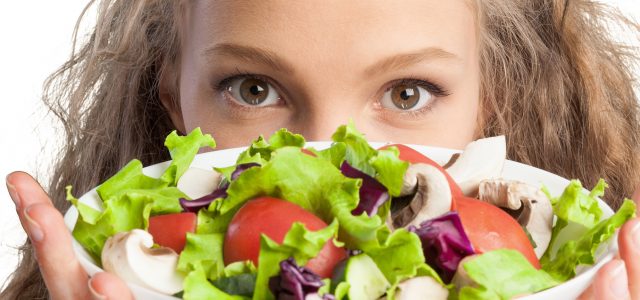
Eat Well, Live Well
We’ve all probably eaten too much over the festive season. It can be difficult to get back to our normal eating habits and getting your five a day seems impossible
But eating healthily, especially in the winter months, can help you feel better and provide those vitamins that are essential for your body.
Eating your five a day is vital for feeling good. Not only does eating fruit and veg significantly reduce risk factors for many chronic diseases in the future, but it also offers really positive benefits right now, such as increased vitality, happiness and improved quality of life. And what better way to shed any excess weight than with tasty plant foods which are low in calories yet filling because of the high levels of fibre.
When you have your five a day, you are getting the vitamins and minerals which are essential for life. Vitamin literally derives from the Latin word “vita” meaning “life”. But your five a day doesn’t only provide basic vitamins and minerals. Each individual fruit and vegetable has its own specific and special nutrients called “phytonutrients”. These active plant compounds help the body to work optimally. Phytonutrients are antioxidants, enzymes, detoxifying agents and fibre type gums. It’s really easy to get your five a day.
Choose any fruit or vegetable, including fresh, frozen, canned, chilled or dried, and one of your portions can be pulses (peas, beans, lentils). The edible portion size is around 80g fresh weight, but to save weighing, a rough guide is the size of your fist. Your daily five ideally includes a variety of fruit and vegetables, of different colours, to get an array of phytonutrition.
Here’s some easy ways to get your five a day: Add beans, tomatoes and mushrooms to your breakfast. Wake up to fresh pomegranate/vegetable juice (1) or a Smoothie (2-3) Sprinkle raisons and chopped banana on your cereal (1-2) Mix sweetcorn and beetroot into your tuna for sandwiches (1) Warm yourself with a large bowl of veggie soup (2) with added lentils (3) Have a side salad with your jacket potato (1), top with roasted vegetables, hummus or coleslaw (2) Have raisons, dried cranberries and banana chips as an afternoon pick me up (1) Snack on carrot sticks and hummus (2) Serve pasta with a vegetable based sauce such as ratatouille (2) Add tinned tomatoes, onions, garlic and mushrooms to bolognaise (1-3) Make vegetable and bean stew (2-3) with celeriac and parsnip mash (4-5) Eat tomato, onion or pulse based curries (1) with added vegetables (2) Use sweet potato instead of white potato (1) have fruit based desserts like strawberries and cream (1), rhubarb crumble (1) baked apple and raisons (2) fruit salad and yoghurt (1).
It is a cliché, but it’s true, you are what you eat. Eating the right foods will also help with your energy and help prevent illness. Every body cell is made from the food you digest. And it’s simple, if you are not eating a correct balance of foods, then your cells cannot function properly. Did you know that our recommended dietary allowance (RDA’s) for vitamins and minerals is only the level that is needed to prevent deficiency diseases? Yet research shows that the levels for ideal health are often much higher.
Optimal levels of nutrients create health, happiness and vitality. We all have a unique combination of genetics, lifestyle, diet and environmental factors impacting on our nutritional needs. Creating your own perfect balance of nutrition is a personal matter. Your body wants fresh, alive foods. The ones you know will make you feel good just by looking at them. They are colourful, bright and vibrant.
This time of year is great for making homemade hearty soups and stews, which can contain an abundance of tasty ingredients.
One nutrient it is worth being conscious of over the winter months is Vitamin D. Our main source is sunlight, so at this time of year it is difficult to get enough. Vitamin D not only builds bones by encouraging calcium absorption but is also essential for a healthy immune function and enhancing our moods.
If you often have seasonal immune complaints or a tendency towards winter low mood, then your GP can check your levels for you.
If you are low, it’s worth supplementing over the colder months. However, natural foods high in vitamin D include oily fish, mushrooms, liver, cheese, and egg yolks. Healthy eating means putting yourself first.
Nourishing yourself says that you do matter. It’s pure and simple selfcare. And it doesn’t take overwhelming change to improve your health. Just alter one thing at a time and see your energy and vitality transform.

